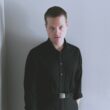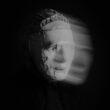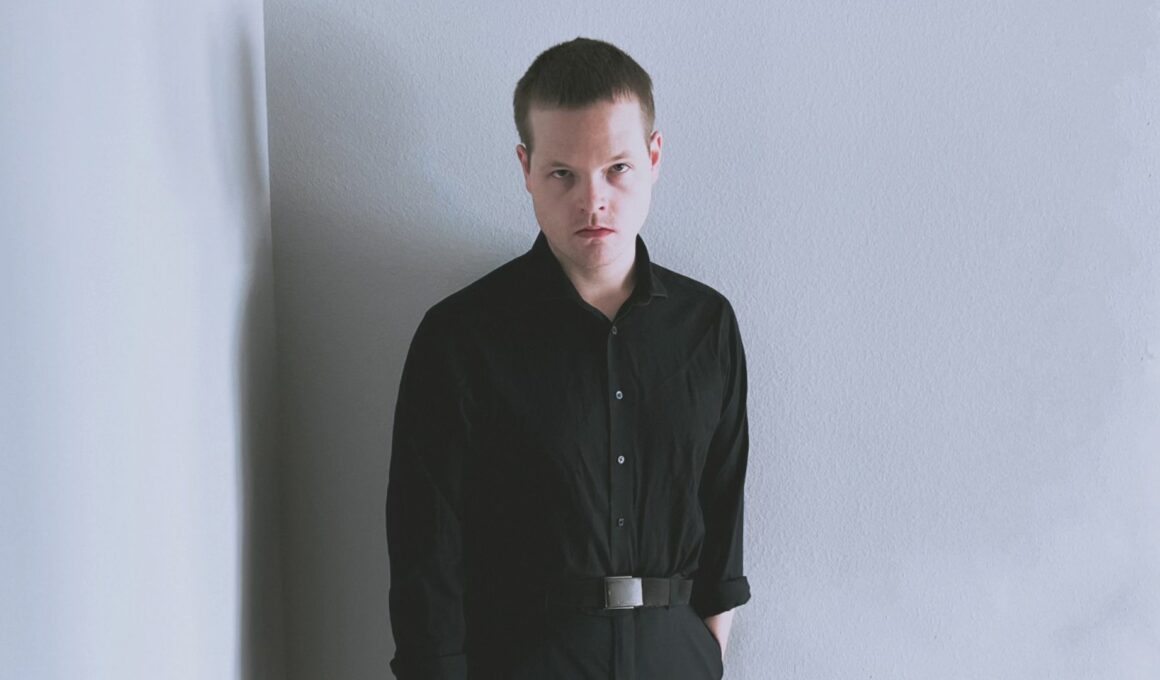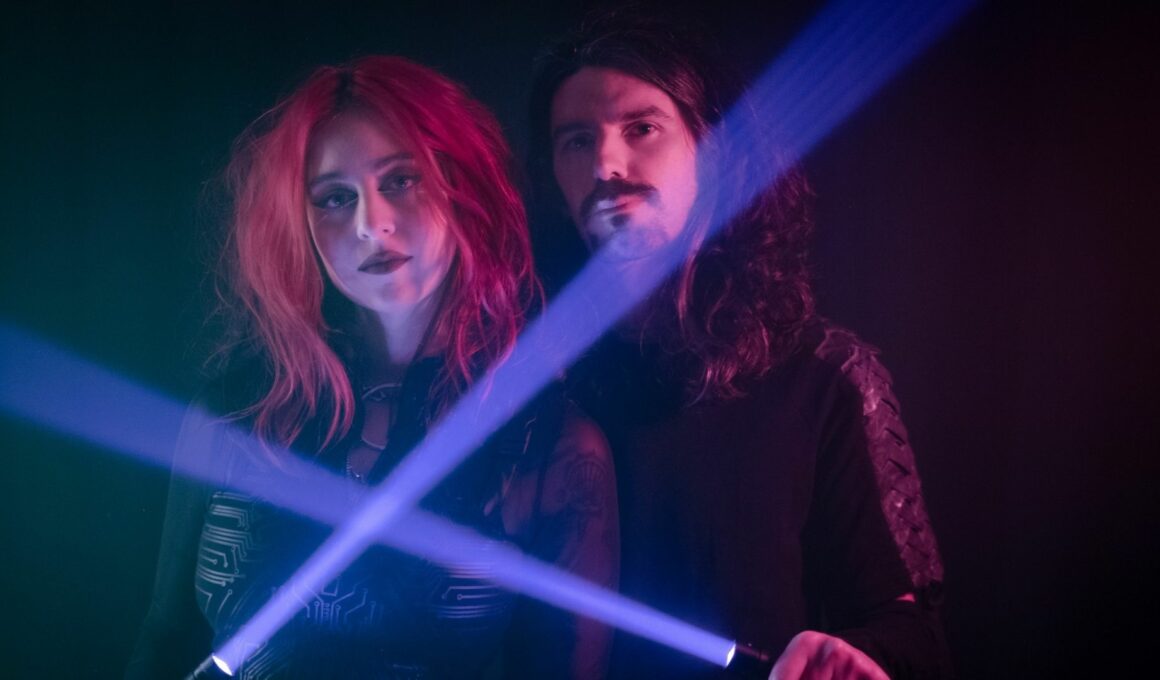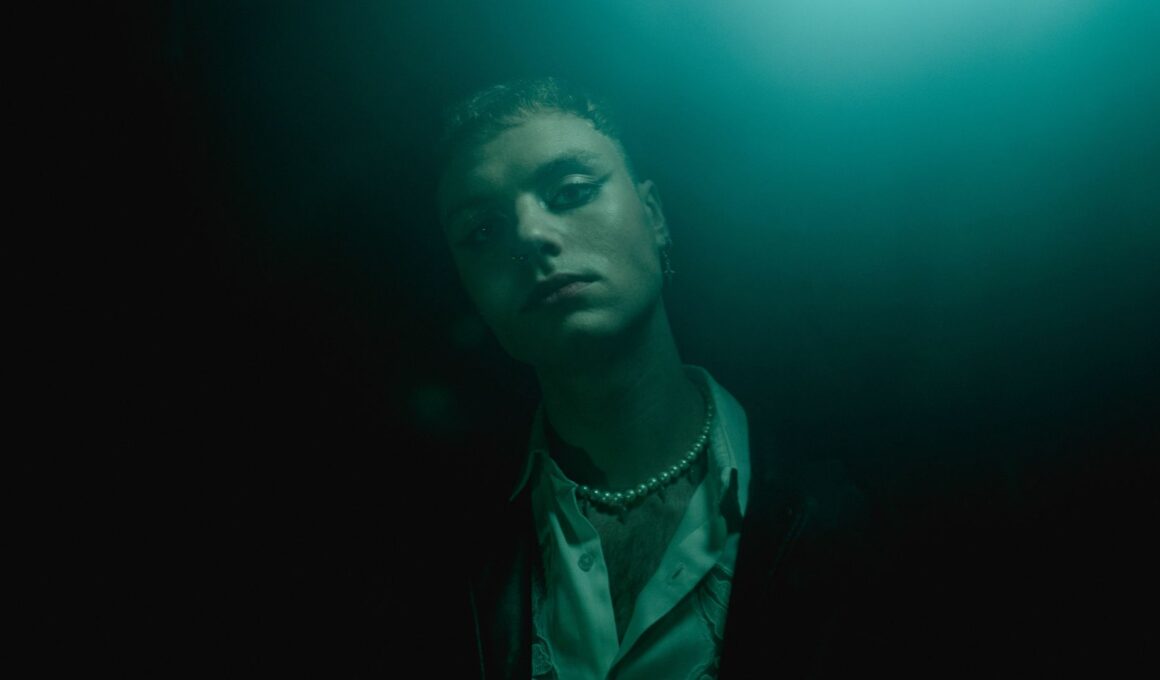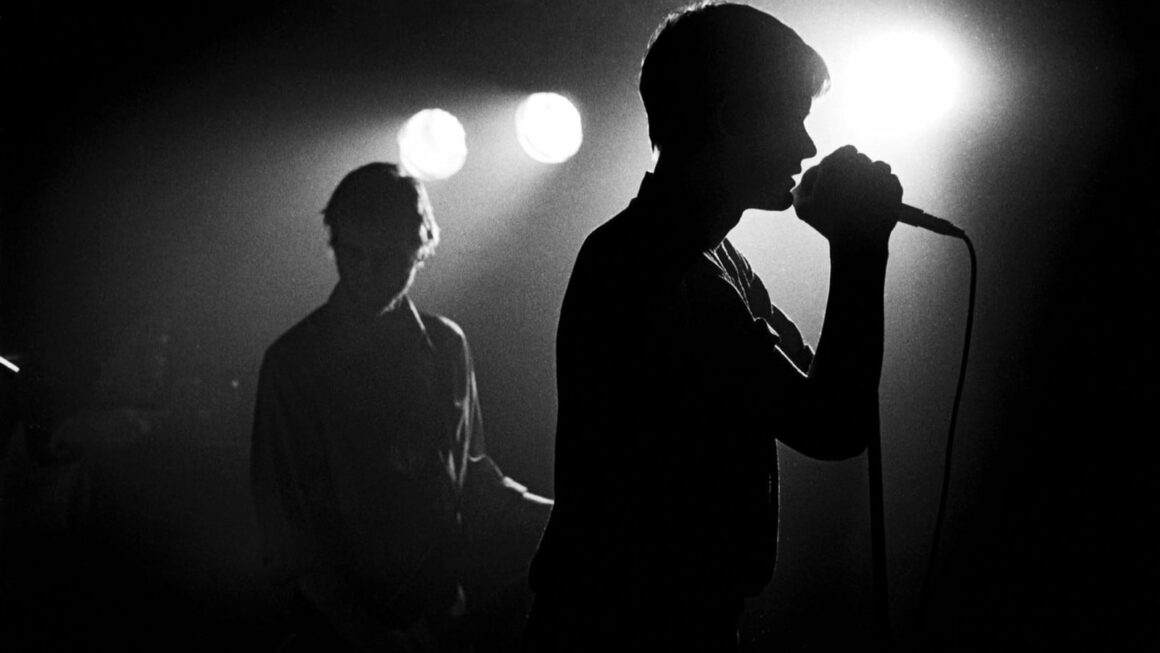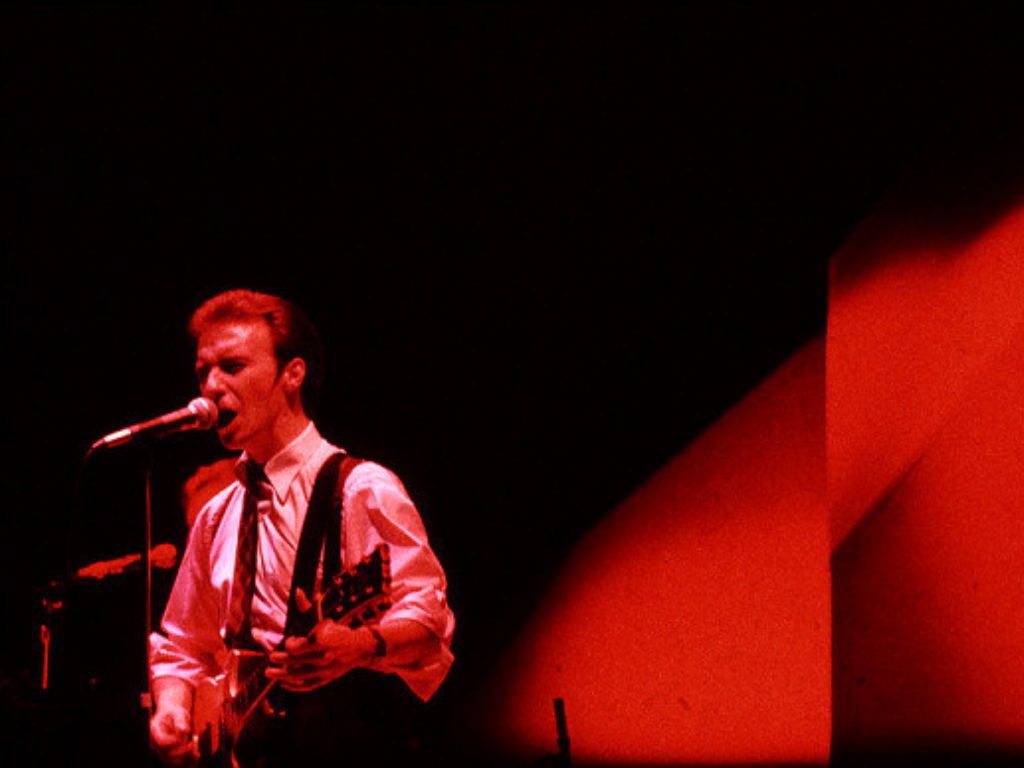
Watch A Rare Live Performance Of Ultravox’s “Vienna”
A beautiful rendition of the band’s classic hit on the short-lived CBS show No Holds Barred.
The crowd looks on, unmoved. The band members on stage are dressed mainly in white featuring black ties, belts, and accents. The music starts. Drums and the synths lead in, building slowly, joined by a high, thin string line. The drum resembles a heartbeat, the synths evoke coldness and fog. The singer delivers the opening lines of the first verse quietly, with restraint, perfectly enunciated. Then comes the first chorus. Suddenly, we’re in operatic territory. Every note is hit at top volume, while barely breaking a sweat.
That’s a 1980 live version of “Vienna” by Ultravox, which sounds more prog-rock influenced than typical punk-infused new wave or the later new romantic or synth-pop sounds. Even though the band did use guitars, there are none on the stage for this particular TV performance. Instead, it’s just banks of keyboards, a drum kit, and a violin.
It was unlikely the crowd had heard anything like “Vienna” before. This was the early days of new wave. The likes of Tubeway Army, Ultravox, and Duran Duran were redefining music as we knew it back then. Synthesizers were lending a cold, robotic, unearthly sound to many tracks. Some bands embraced the grandiose sounds of classical music and nodded towards the pomp of prog rock. Others went for synth-pop perfection – think of Erasure or Human League. But Ultravox’s Billy Currie was classically trained on viola and piano. To that came that he had studied composition and harmony which is why this song used many of his skills. He has said the band was deliberately going for a highly classical sound. This approach also unwittingly provided the perfect vehicle for Midge Ure’s soaring vocals.
Even so, when released as a single in January 1981, “Vienna” was kept from the number one position firstly by John Lennon’s songs (Lennon had been shot the month before) and then, almost criminally, by the novelty single by Joe Dolce called “Shaddup You Face”.
“This means nothing to me.”
Midge Ure
For the geeks among us, the song features not only a grand piano and a violin solo but a MiniMoog bassline and a Roland CR-78 drum machine. That famous string part is thanks to an Elka synth. Ure has said that the lyrics started with the line ‘this means nothing to me’, and were about the typical end of a romance. Any Eastern European inspiration appears to have been purely accidental, although in many interviews of the time, the band did make reference to such influences. As with many things about this track, what is left is the song itself, with everything else lost along the way.
The video, which may or may not have been inspired by The Third Man, depending on which account you read, was made in London and Vienna. Its dark, brooding feel, verging on the horror ideally fits the song. Again, the original idea behind the video, apart from shoehorning the city of Vienna into it somewhere, appears to have been lost in the mists of time.
“Vienna” definitely marked a turning point in Ultravox’s sound. Ure had joined after the departure of previous lead singer John Foxx and guitarist Robin Simon, so the time was ripe for a change in sound. Ure wanted to use more electronic sounds in his music, and “Vienna” delivers that opportunity in spades, plus utilizing Billy Currie’s classical training, allowing him and the others more creative input, as they wished.
Ure has always been a prolific collaborator. He was working with Rusty Egan and Billy Currie in Visage when the opportunity came to join Ultravox, then he was asked to tour the US for a month with Gary Moore just after joining the band. Although this temporarily halted work on the new album, they all agreed it was for the best, as the band needed money for equipment and to pay for studio time. This approach paid off, as did the wrangling with their record company, Chrysalis, about whether or not Vienna should be released as a single.
The money Ure earned on tour paid for equipment and studio time to record Vienna the album. The band kept on asking Chrysalis to release it as a single. Eventually, it was. And the rest is history.

